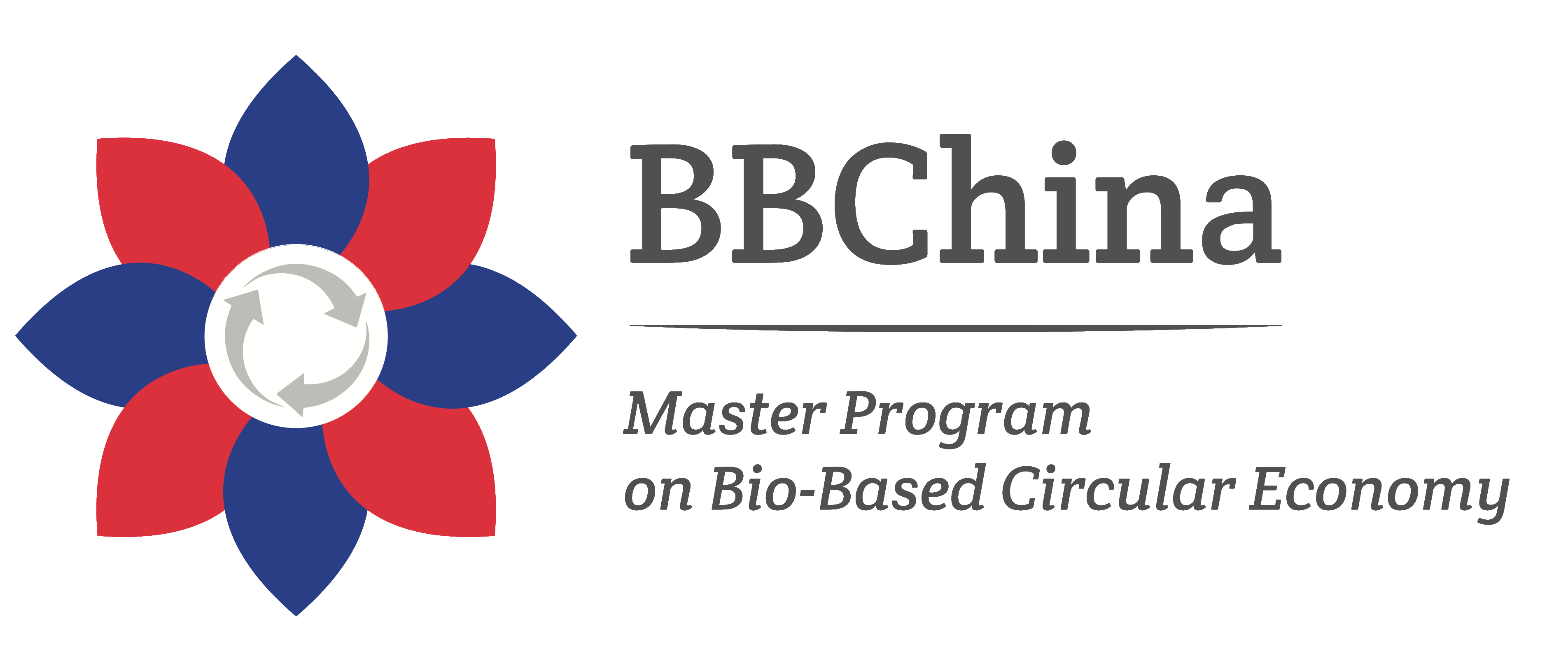Background
The BBChina Project is focused on the development of a Master Program on Bio-Based Circular Economy devoted to the biomass chain from the field to bioenergy, biofuel, and biochemicals.
The decision to implement a specific curriculum on bioenergy, biofuel, and bioproducts designed for China has been undertaken following a request from Chinese head professors working in the related fields, so to help Chinese Universities train next generation of scientists and technicians to tackle this important environmental challenge.
China is a country rich in biomass resources, has great potential for energy utilization and, as of 2015, utilized biomass is already about 35 million tons of standard coal equivalent. Biomass power generation and liquid fuel industry are present and bio natural gas industry has started, showing a good development trend. The market for solid biomass (i.e. wood briquette) is also active.
Despite massive resources and increasing utilization, bioenergy and biochemicals are still in the early stage of development in China, and the following problems remain:
- a society not fully aware of biomass energy;
- the specialization degree of marketization is low, the technical level needs to be improved, and the standard system must be improved;
- related policies must be improved and there’s a lack of mechanisms to give utilization priority to the use of energy from biomass.
There are also several main limiting factors for biobased economy development in China:
- the market for organic fertilizer from bio-waste is still low;
- lack of standards and regulation regarding the quality of bio-based products and the pollution control of technologies;
- existing technologies/processes are not optimized or run stable;
- the benefits of Bioenergy, Biofuels and Biochemicals are underestimated and not comprehensively accounted from a life-cycle point of view (i.e. GHG and pollutants reduction, replacement of fossil energy/fertilizer etc.), but are only evaluated on the immediate economic gains.
In order to support the development of a biobased economy, the Chinese government, in March 2016, has then issued a series of “13th Five-Year Plan” [1] and strategic documents encouraging the development of biogas, biofuel, bioenergy, organic fertilizer from bio-waste (food waste, manure, straw, etc) and biomass. These are the 13th Five-Year Plan on the:
- construction of Treatment Facilities for Urban Domestic Refuse in China,
- development of Biomass Energy (e.g. including the following 2020 targets: commercialization and large-scale use of bioenergy; bioenergy per year 8 Mt coal eq.; installed gross biomass power generation 15GW, 90GWh/y energy output; 8 Gm3 biogas, 6 Mt biofuel, 30 Mt briquette per year),
- development of Renewable Energy,
- formulation of National Environmental Protection Standards,
as well as the “Implementation Plan of Straw Comprehensive Utilization” and the “Plan to Promote the Resource Utilization of Agricultural Wastes.
There is indeed an increasing request of trained personnel in the field by the Industries asking for local expertise, presently scarcely available because Universities are not always able to fulfill the request; even if courses in the field are sometimes present in the involved Universities, there’s a strong lack of coordination and homogeneity.
Objectives
Six Higher Education Institutions among China and Europe have agreed to work together in order to establish and implement a 120 ECTS equivalent Master Program on Bio-Based Circular economy in three Chinese Universities.
The aim is to start the first edition of the Master in September 2019 in the following Universities: Tongji University and East China University of Science and Technology, both from Shanghai, and the Sichuan University of Chengdu.
The Master will be implemented within the BBChina Project, supported by the Education, Audiovisual and Culture Executive Agency of the European Commission under the ERASMUS+ programme.
The project BBChina started in autumn 2017, aims to help People’s Republic of China fully exploiting its wide bioenergy potential, thus strongly decreasing the present use of fossil fuels that dramatically increases the local pollution and that is strongly affecting the pollution at world level as well as global warming.
To reach the aim, the newly established Master program will deeply analyse the complex chain that starts from the biomass production and collection until the output of biorefineries, to the bioenergy production, to the biofuel utilisation as well as to the always more important integration with other Renewable Energy Sources (RES).
Furthermore, the program will include education and training activities such as technical laboratory, international mobility of teacher and students, seminaries, and actions to trigger and encourage young entrepreneurship and innovation in the global green market scenario.
The project BBChina aims to help People’s Republic of China fully exploiting its wide bioenergy and biobased products potential, through the implementation of a 120 ECTS equivalent Master Program on Bio-Based Circular economy in three Chinese Universities, Tongji University and East China University of Science and Technology, both from Shanghai, and the Sichuan University of Chengdu.
The exploitation of this high potential could help strongly decreasing the present use of fossil fuels in China that dramatically increases the local pollution as well as the global warming at world level.
In fact, declining fossil fuels availability and increasing environmental problems, including global warming and air pollution, are driving Chinese society to search for new sustainable sources of energy such as bioenergy and biofuels as well as biochemicals substituting petrochemical-derived materials.
Biomass provides an ideal alternative to fossil resources; indeed, biomass is the only sustainable source of interest organic compounds and has been proposed as the ideal equivalent to petroleum for the production of fuels and energy.
